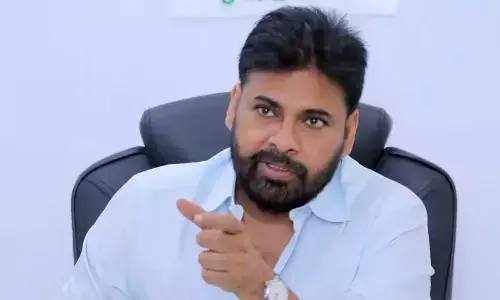Are skills getting priority in our education system ?

Representative image
A NASSCOM survey carried out in 2019 reveals that only 2.5 lakh of around 15 lakh engineering graduates that come out every year are employable.
This speaks volumes about the quality of our education system, which consists of 80% theory with little exposure to real-life situations and hands-on experience. In our system, focus is still more on issuing degrees or diplomas and less on skill development. When The Hans India spoke to people on the issue, almost all of them emphasised the need to impart skills suitable for industry to the students through measures like internships, intense practical training, etc.,
In commerce and management related courses, the students extensively study the theory and sit for the exams without any practical experience. There is a gap between what they study to the field level experience, and they are lacking the skills that the industry is expecting from them. To bridge this gap, there should be a linkage between the university and the industry.
The syllabus should be revised regularly, and the related industrialists should be made part of the syllabus committees. By this, the required skills should be made part of the curriculum on a 50-50 basis, and the students should be able to perform from their first day of the work in the industry.
- Dr N Venkateswara Rao, Associate Professor (Retired), Dept of Commerce and Business Administration, ANU PG Campus, Ongole
Education should be changed by making skill-oriented courses an integral part of it. They help the students in finding jobs easily in these competitive times after completion of education.
Present education system is not providing skills along by focusing only on bookish knowledge which is making the students feel incompetent themselves when they fail in getting jobs.
- M Vani, parent, Tirupati
At present the competition for jobs has been increasing with the rising number of students coming out of engineering colleges. But, the industries are expecting skilled employees or engineers.
A one year apprentice should be made mandatory after engineering which helps to improve their skills. Without skills, nobody will get jobs now. Present education system is not giving priority to skill oriented courses.
- J Rahul Chaithanya, CME second year student, S V Polytechnic, Tirupati
The objectives of proposed skill development centres is enhancing employability. Develop more practical, applied, experience-based education. Government should give paramount importance to skill development courses and rethink higher education curricula. Identify opportunities in current curricula to infuse experience-based and real-world learning experiences, such as internships and apprenticeships.
Embrace new teaching technologies and techniques that support experimental learning and customised coaching. Industry-institute interaction cells should play a major role in establishing skill development centres and colleges should partner with industry. Build alliances with industry partners to identify and validate particular needs for specific skills. Work with partners to establish apprenticeships, internships and other practical programs. Share learning and refine strategies.
Develop a benefits-realisation plan to monitor and evaluate the impact of real-world learning programmes on student skills and capabilities. Create a framework for sharing and adopting best practices with higher education institutions across the nation.
- Yarava Prakash, head, Computer Institute, Anantapur
In the present competitive scenario, skill development plays an imperative role. Along with offering diploma and degree certificates, the education system should focus on skill development at large. Right from childhood days, parents and teachers have to keep a tab on the children's creative skills. Apparently, skill development should be part and parcel of our education system.
The objective of education is not only to aid students securing a job but also empower them to lead an independent life. Skills should be imparted based on the students' field of interest. With technology becoming an integral part of life, students should be exposed to technology right from their school days.
- SDSV Prasad Rayudu, data analyst, Visakhapatnam
















